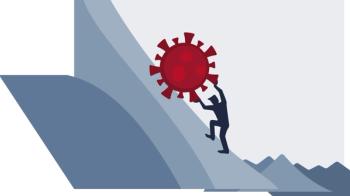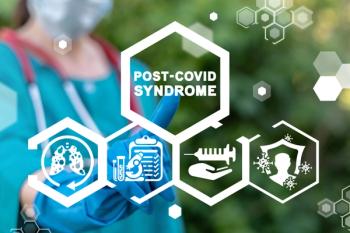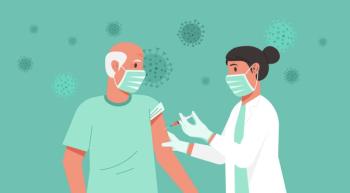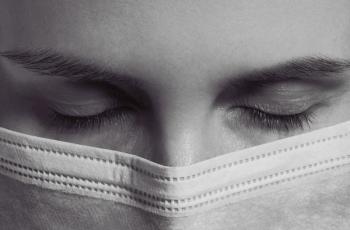
The Impact of COVID-19 on Patients With an Alcohol or Substance Use Disorder
Alcoholism and addiction to other mood-altering drugs are biological medical problems, either inherited or acquired. Incurable but treatable, not all addictions lead to catastrophic consequences.
Alcoholism and addiction to other mood-altering drugs are biological medical problems, either inherited or acquired. Incurable but treatable, not all addictions lead to catastrophic consequences. Two drugs that are used by a large portion of the population are caffeine and benzodiazepines. Both are highly addictive but seldom lead to significant life problems. In the case of benzodiazepines, they become life-threatening only when stopped abruptly or are deliberately used to overdose. Alcohol, methamphetamine, and opiates will inevitably create significant social, medical, and legal problems as the addiction progresses. Unless treated, these addictions lead to incarceration, prolonged hospitalizations, or death.
I knew an alcoholic who stated he was allergic to alcohol. Whenever he drank it, he broke out in handcuffs, divorce court, or fights.
The main pathological characteristic of people with alcohol or
One feature of addiction, although certainly not exclusive to addicts, is the tendency to isolate. There is no such thing as a social heroin addict. As the disease progresses, addicts begin to slowly withdraw from the world, and they wind up isolated and alone.
Currently the best treatment for addiction is a
In my experience, encouraging participation to begin a 12-step program (eg,
Another reason 12-step programs may fail is that patients may not accept the concept of a higher power or God. They are put off by the reference to God in the AA literature and don’t understand the difference between religion and spirituality. Religion is for people who are afraid of going to hell. Spirituality is for people who have been in hell and don’t want to go back. Spirituality means trying to do the right thing. Self-esteem is not given to a person, it must be earned by practicing spiritual principals. It’s actually quite simple; to have self-esteem, do estimable things.
A 12-step program may also fail because patients with an addiction may be willful; they don’t accept that they are powerless over their addiction and cling to the notion they can quit on their own. They are reluctant to share their feelings. A phrase often heard in AA meetings is that a person is only as sober as his darkest secret. In other words, sharing things that are shameful and buried deep in the consciousness is encouraged because until these secrets are revealed (to a trusted friend, clergy or physician, not necessarily to a whole group), they will fester continue to play a role in preventing serenity, which is the goal of the AA program.
To recover, patients with alcoholic or substance use disorders must learn to believe in a higher power, although it doesn’t need to be God. It could be nature, or the collective wisdom of the group. If a person doubts there is a higher power, ask him why the sun will rise in the morning; no matter what he wants or believes, it will happen. He has no control over how the sun sets and rises, just as he is powerless over his own addiction. This is the fundamental idea we teach alcoholics, that they are not only powerless over their addiction, but they are powerless over everything. This is not to say that a person should abandon all planning and efforts to meet his or her goals. Instead, it is the realization that reasonable people must plan and make the effort to achieve their goals, but ultimately, they are powerless over the outcome.
The current pandemic has created several problems for patients recovering from an addiction. The need to stay home provides the opportunity to isolate. Fortunately, groups across the US and worldwide have adapted to new technologies such as Zoom to enable virtual meetings. Since people are home and not working, they can talk more on the phone with fellow addicts. Therapists have set up virtual teletherapy sessions. Being home has brought families closer together and may create problems but may also strengthen relationships.
Patients with alcohol or substance use disorders should be encouraged to follow a set routine. It is essential that they get up each morning, make their bed, and put away their clothes. They should dress as if they were going to work, even if they do not work. They should be encouraged to spend at least 30 minutes a day, but no longer than an hour exercising and being outside. If they are not working, they can become involved with some form of volunteer work by helping other people. There is no better treatment for self-pity then assisting another person. It is an excellent time to learn new things by reading and taking advantage of the fantastic amount of material available on the internet. They should commit to talking to someone every day and attend virtual meetings. Lastly, they must remain grateful for what they have. No matter how far down the social scale a person has gone, there is always something to be grateful for.
In some ways, patients with an addiction may be better prepared to deal with the social isolation we are feeling by being confined to home since that is what they are used to. However, they will not do well if they are allowed to remain isolated. Addicts are used to dealing with chaos in their lives, and many have told me they stay calm in the face of disasters. I believe that is true. Some of the most talented, hardworking people I know are recovering addicts. Some of the bravest most fearless soldiers I have known are recovering addicts. They remain calm in the face of danger. It is not a catastrophe that causes relapse; it is more likely the build-up of multiple little irritations in life that are not dealt with that lead to relapse.
So while the current
Disclosures:
Dr Murray is Chief Medical Officer at MJH Life Sciences. He is Board Certified in Internal Medicine and a Clinical Assistant Professor of Medicine at Rutgers Medical School. He served as Medical Director of the Alcohol Rehabilitation Center at Carrier Foundation in Belle Mead, NJ for 13 years. The views expressed do not necessarily reflect those of the publisher and are my own.
Newsletter
Receive trusted psychiatric news, expert analysis, and clinical insights — subscribe today to support your practice and your patients.







